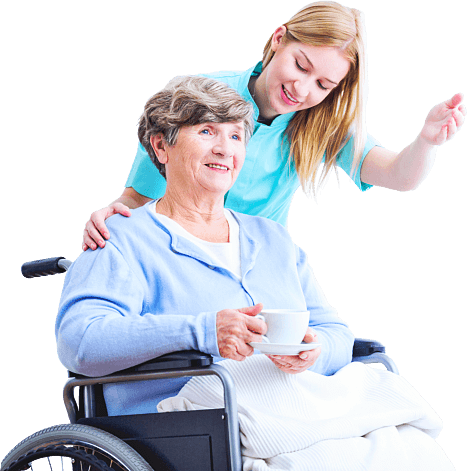Many caregivers fall into their role when a family member or close friend becomes ill or too old to care for themselves. Most of the time, caregivers have no training in how to give care. Caregivers are learning on-the-job so to speak. One area that may not come to mind for new or untrained caregivers is what to do about waste disposal to prevent injury, illness, or pollution.
As a caregiver to a diabetic, and as a former hospital employee, I know about disposing of needles and syringes, but others may not know the proper way to dispose of such items. Here are a few tips that will help caregivers help keep themselves and their loved one safe in their home.
Waste Disposal Tips For Caregivers
To help prevent injury or illness, you should safely dispose of sharp objects and contaminated material. Place needles, syringes, lancets, and other sharp objects in a hard-plastic or metal container with a tight lid.
Any number of containers you probably already have around the house will provide you with a safe way to dispose of contaminated material. Coffee cans, bleach containers, or orange juice jugs are examples. Before discarding the container, make sure the lid is tightly screwed on and some suggest the lid should be further tightened with heavy-duty tape.
Do not put sharp objects in any container you plan to recycle. Whatever container you use must be discarded with the disposed material inside. Don’t use any container as a temporary holder, then decide to recycle. Make sure to keep the container away from children and pets.
Some health care agencies will provide their own containers and will pick them up for disposal at their site.
Soiled Material Disposal
Any soiled bandages or other items that are contaminated with blood or body fluids should be placed in plastic bags and securely fastened. Place the bags in your garbage can or trash cart for pickup.
Wash Your Hands
One of the most important tasks you can do is wash your hands before and after giving care to another person, even if you are wearing gloves. You should also wash your hands before and after handling food or eating meals, using money, touching pets, after using the toilet, changing diapers, handling soiled linen, or coughing, sneezing, or blowing your nose.
Frequent hand washing is the best way to keep germs from spreading. Many health care workers do not become ill when everyone around them is sick because they have learned the importance of frequent hand washing.
How to wash your hands
Yes, there is a specific way caregivers should wash their hands to keep themselves safe and healthy. Here are a few tips:
- Remove your jewelry
- Use plenty of warm water and liquid soap
- Hold your hands down so the water runs off your hands and not onto your arms
- Scrub for at least 20-30 seconds. Some use the chorus to Yankee Doodle Dandy while children are currently being taught to sing the ABC song while they wash their hands to make sure they spend enough time.
- Wash under your fingernails and between your fingers
- Dry hands on clean paper towel or clean cloth towel
Experts and health care workers believe washing your hands is the single most important step in controlling the spread of infection anyone can do.
Hopefully, these tips will keep you safe and healthy as you perform your care giving duties. The last thing you want to become ill yourself. There are too many disease floating around out there, and you need to protect yourself and your loved one. You can do so by following good infection control techniques.
© September 11, 2011 Elder Care Magazine – by Chris Pearson




